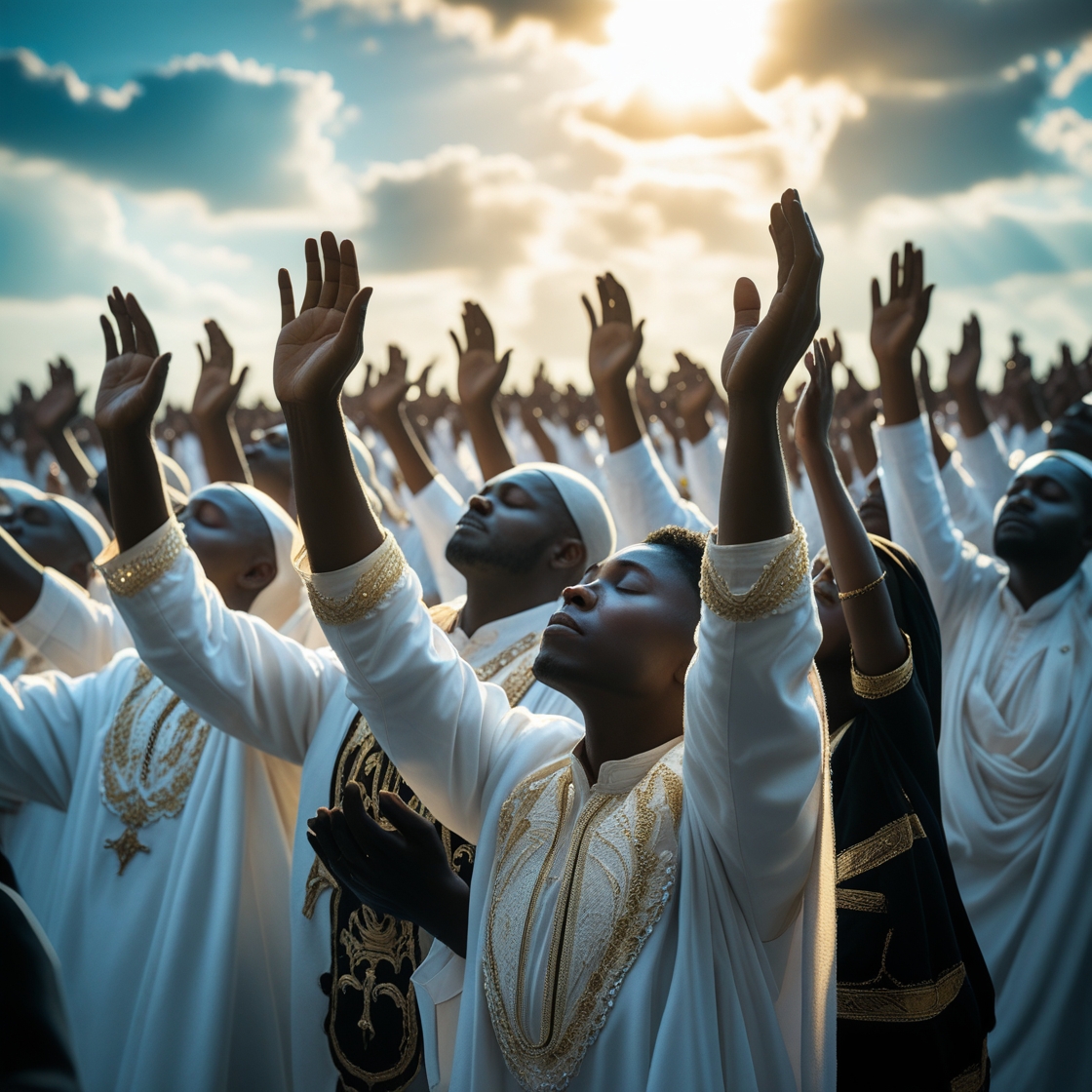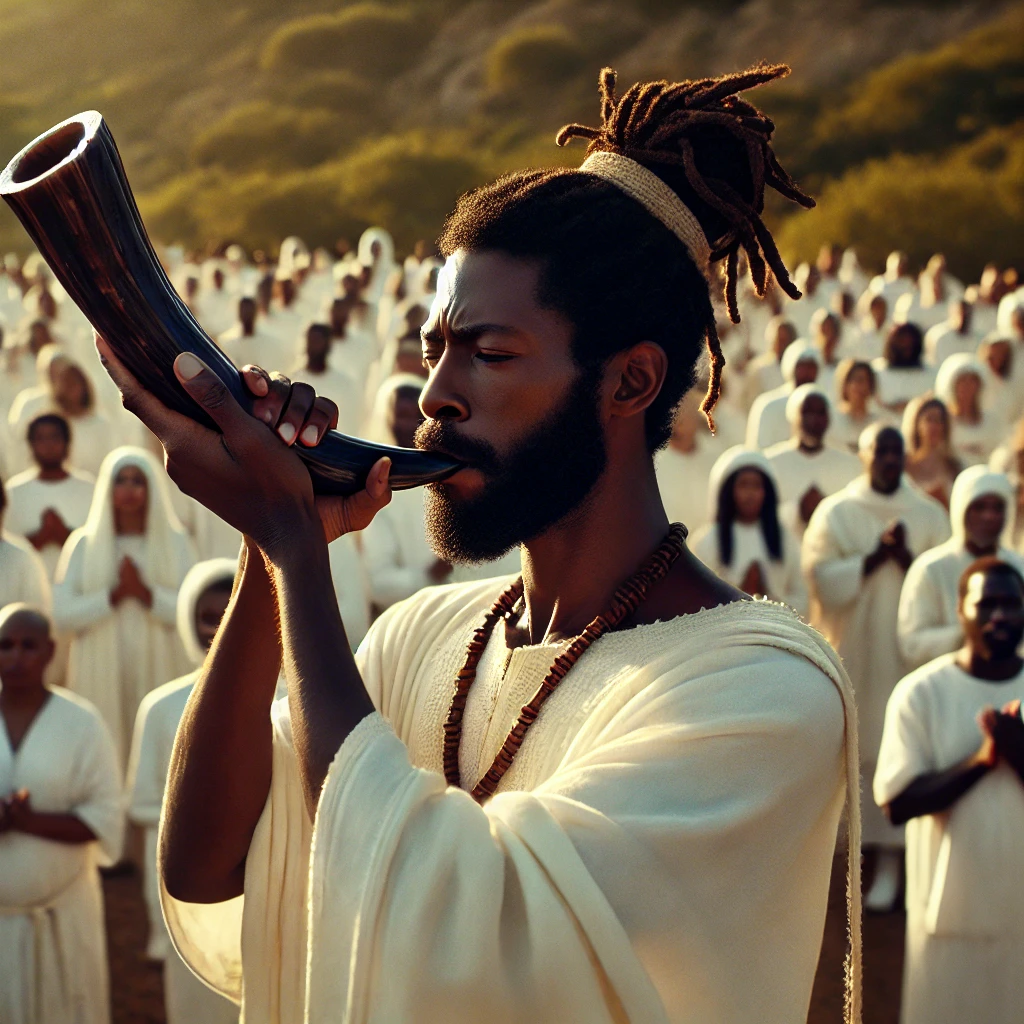Passover is not just an ancient tradition or a festival that belongs to the past—it is a living, breathing commandment from YAHUAH that holds eternal significance for the children of Israel. Many people have been misled into believing that Passover is just a Jewish holiday, but the Bible makes it clear that Passover is a perpetual ordinance meant for all Israelites throughout their generations.
Exodus 12:14 states:
“And this day shall be unto you for a memorial; and ye shall keep it a feast to YAHUAH throughout your generations; ye shall keep it a feast by an ordinance forever.”
This commandment was not given for a temporary period—it was established forever. This means that Passover is just as relevant to Israelites today as it was to our ancestors in Egypt.
But why does it matter so much? Because Passover is about deliverance, obedience, and redemption. It is a reminder of YAHUAH’s power to save His people, not just from physical oppression but from spiritual bondage as well. It is also an act of obedience, a demonstration of our faith in YAHUAH’s commandments. And most importantly, it prophetically points to Yahushua Ha’Mashiach, who became the ultimate Passover Lamb for us.
In this article, we will explore why Passover is still crucial for Israelites today, the deep spiritual truths hidden within its observance, and how it serves as a prophecy of the greater deliverance to come. If we want to truly walk in obedience to YAHUAH and align ourselves with His divine plan, we must understand and keep the Passover as He commanded.
(See our book, The Chosen Seed: Predestination)
The Biblical Origins of Passover
What Is Passover?
To understand Passover, we have to go back to Exodus 12, when YAHUAH sent the final and most devastating plague upon Egypt—the death of all the firstborn. However, He provided a way for His people to be spared from this judgment.
Exodus 12:12-13 states:
“For I will pass through the land of Egypt this night, and will smite all the firstborn in the land of Egypt, both man and beast; and against all the gods of Egypt I will execute judgment: I am YAHUAH. And the blood shall be to you for a token upon the houses where ye are: and when I see the blood, I will pass over you, and the plague shall not be upon you to destroy you, when I smite the land of Egypt.”
This was a defining moment in Israelite history. The Israelites were commanded to sacrifice a lamb and place its blood on their doorposts as a sign of obedience and faith in YAHUAH. Those who followed this command were spared, while those who did not suffered the loss of their firstborn.
But this event was not just about physical deliverance—it was about spiritual alignment. Passover represents a covenant relationship with YAHUAH. The Israelites who obeyed His command were protected, and those who did not faced judgment. This is why Passover is so much more than just a holiday—it is an expression of faith and obedience.
(See our book, Passover: Mysteries Revealed)
Passover as a Covenant With YAHUAH
Passover is not a suggestion; it is a covenant between YAHUAH and His chosen people. To ignore it is to reject that covenant, and the Bible makes it clear that neglecting Passover has consequences.
Numbers 9:13 states:
“But the man that is clean, and is not in a journey, and forbeareth to keep the Passover, even the same soul shall be cut off from among his people: because he brought not the offering of YAHUAH in his appointed season, that man shall bear his sin.”
This verse shows us that keeping Passover is not optional—it is a requirement for those who are part of Israel. By keeping Passover, we reaffirm our identity as YAHUAH’s people and acknowledge His sovereignty over our lives.
(See our book, The Chosen Seed: Predestination)
The Spiritual Meaning of Passover
Passover and Deliverance from Sin
The first Passover was about YAHUAH delivering His people from physical slavery, but its spiritual significance goes even deeper. Passover also represents our deliverance from sin and spiritual bondage.
1 Corinthians 5:7 states:
“Purge out therefore the old leaven, that ye may be a new lump, as ye are unleavened. For even Ha’Mashiach our Passover is sacrificed for us.”
Here, Paul is drawing a direct connection between Passover and Yahushua’s sacrifice. Just as the Israelites were freed from Egypt, Yahushua frees us from the bondage of sin. This is why Passover is a time of reflection and spiritual renewal—it reminds us that we have been redeemed and must walk in righteousness.
(See our book, Passover: Mysteries Revealed)
The Importance of Unleavened Bread
During Passover, Hebrew Israelites eat unleavened bread for seven days. This is not just a dietary restriction—it is a spiritual practice.
Exodus 12:15 states:
“Seven days shall ye eat unleavened bread; even the first day ye shall put away leaven out of your houses: for whosoever eateth leavened bread from the first day until the seventh day, that soul shall be cut off from Israel.”
Leaven, or yeast, is often used in the Bible as a symbol of sin and corruption. Removing leaven from our homes is a physical act that mirrors a spiritual cleansing—it reminds us to remove sin from our lives and walk in sincerity and truth.
(See our book, The Path: Of Righteousness)
The Prophetic Fulfillment of Passover in Yahushua Ha’Mashiach
Yahushua as the Passover Lamb
Yahushua Ha’Mashiach was not crucified at any random time—He was crucified during Passover. This was not a coincidence. It was the fulfillment of prophecy.
John 1:29 states:
“Behold the Lamb of YAHUAH, which taketh away the sin of the world.”
Just as the Israelites were saved by the blood of the lamb in Egypt, we are saved by the blood of Yahushua. His sacrifice is the ultimate Passover, making it clear that Passover was never just about the past—it was always pointing forward to Him.
(See our book, Passover: Mysteries Revealed)
Why Passover Still Matters Today
Obedience to YAHUAH’s Commandments
Many people today celebrate Easter instead of Passover, but Easter is not found anywhere in the Bible. It is a man-made tradition with pagan origins.
Mark 7:8-9 states:
“For laying aside the commandment of YAHUAH, ye hold the tradition of men.”
We are commanded to keep Passover, not Easter. Choosing Easter over Passover is choosing the traditions of men over the commandments of YAHUAH.
(See our book, The Chosen Seed: Predestination)
Conclusion
Passover is more than just a festival—it is a commandment, a memorial, and a prophecy of future redemption. Keeping it honors YAHUAH and strengthens our faith in Yahushua Ha’Mashiach. If we are truly Israel, we must return to our heritage and observe Passover as YAHUAH intended.
(See our book, Hebrew Israelite Biblical Feast Days: What They Are And How We Celebrate Them)
If you would like to have more information about our beliefs please check out our books: Unknown Hebrew Collection
Also, if you would like to know more about our new books and have access to promo codes please sign up to our Newsletter: Newsletter
Follow us at Substack for weekly blogs about a wide range of Israelite topics: Substack
Finally, if you would like to contact us or email us directly please go to: Email Us






